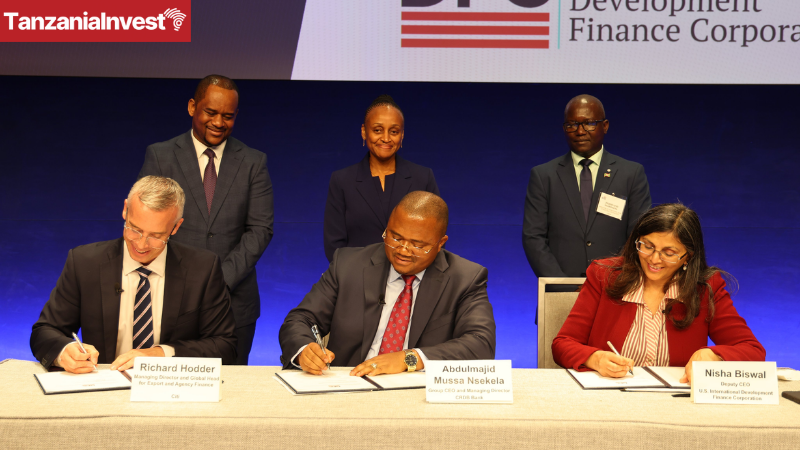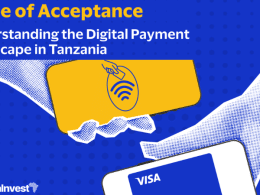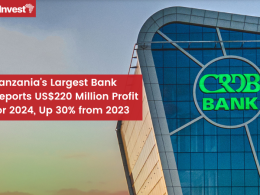The U.S. International Development Finance Corporation (DFC) and Citi Bank announced US$320 million in financing for CRDB Bank, the largest commercial bank in Tanzania, to strengthen its ability to provide loans to small businesses, particularly those owned and led by women.
The funds are expected to significantly bolster CRDB Bank Group’s efforts in fostering inclusive economic growth in Tanzania, as part of its five-year strategic plan aimed at enhancing support for entrepreneurs.
DFC Deputy CEO Nisha Biswal, Citi Global Head of Export and Agency Finance Richard Hodder, and CRDB Bank CEO and MD Abdulmajid Nsekela signed the loan agreement on 26th September 2024 on the sidelines of the ongoing U.N. General Assembly.
The Prime Minister of Tanzania Kassim Majaliwa and a delegation of senior Tanzanian officials attended the ceremony to observe the signing.
The project will support more than 4,500 small businesses in Tanzania, and US$60 million will specifically support Tanzanian women-owned or women-led small businesses eligible for DFC’s 2X Women’s Initiative. At least US$25 million will also go to supporting small businesses in Burundi where CRDB Bank is also present.
Commenting on the loan, DFC Deputy CEO Nisha Biswal remarked: “DFC is committed to Tanzania’s economic growth, targeting investments that will have the greatest impact on people and communities. This loan will support on-lending to thousands of small businesses that are driving economic progress across the country.”
Citi Tanzania’s Chief Country Officer Geofrey Mchangila added: “Citi is actively working to execute our social finance agenda through innovative partnerships like this. Our goal is to help create real economic value in Tanzania by driving financial inclusion through the empowerment of small businesses by meeting financial needs that are currently unmet. This transaction is part of our US$1 trillion commitment to sustainable finance by 2030, strategically focused on expanding access to employment, finance, basic infrastructure, and services to low-income communities in emerging markets.”
On his part, CRDB Bank CEO Abdulmajid Nsekela said: “US$320 million loan will greatly expand access to finance for women- and youth-led micro, small, and medium-sized enterprises (MSMEs) across Tanzania and Burundi, empowering these entrepreneurs to innovate and build sustainable growth. We are confident that this funding will not only fuel business expansion but also serve as a catalyst for gender equality, providing women entrepreneurs with the support they need to thrive and contribute to inclusive economic development.”
DFC in Tanzania
This loan builds on DFC’s extensive past work with CRDB Bank alongside USAID/Tanzania to support Tanzanian small businesses and Tanzanians, including a US$20 million guaranty to support lending to small businesses with a focus on providing education services and working in informal sectors and a US$4 million guaranty to expand access to finance for women and youth borrowers in the health sector.
Africa is a priority for DFC’s investments and is DFC’s largest regional portfolio. The agency currently has more than US$11 billion in exposure in countries across the continent.
SMEs in Tanzania
More than 95% of businesses in Tanzania are small enterprises. SMEs contribute about 1/3 of the country’s GDP and are responsible for generating up to 40% of total employment.
About 54.3% of small, medium, and micro enterprises (MSMEs) in Tanzania are women-led businesses and fall under the informal sector, mostly in agriculture.
They struggle to secure financial resources from banks and financial institutions as these require collaterals, accurate accounting information, and documentation of borrowed projects that MSMEs are unable to provide.










